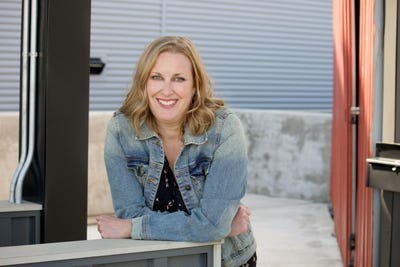New California culinary center serves Kaiser Permanente, reaches for food justice goalsNew California culinary center serves Kaiser Permanente, reaches for food justice goals
More than just food distribution, a new model of collaboration in the Bay Area: FoodService Partners’ Union City Food Culinary Center is addressing troublesome systemic inequalities in the area.
Is there a new model for a path to healthier, more resilient, more equitable communities? As a workable answer to food and job insecurity and a way to build resilience in the community, FoodService Partners’ Union City Food Culinary Center opened this month to produce 50,000 meals per day to local hospitals and more.
Part meal production/distribution center and part food hub/business incubator, the center is a high-capacity operation that has created 150 living-wage jobs in San Francisco’s East Bay. Along the way, a real change in existing inequalities could potentially take place.
The overarching goal of the culinary center is finding community-driven solutions to complex problems that are interrelated, like racial and health disparities and lack of fresh food and on top of that, the coronavirus pandemic and climate change, too.
These are the core values of Anchors in Resilient Communities (ARC) collaborative, which includes Health Care Without Harm and Emerald Cities Collaborative, other forces behind the center, both of which bring large anchor institutions like hospitals and schools together with locally owned businesses, farms, community gardens and nonprofits.
“This center and the ARC partners who have mobilized around it represent a new model of collaboration and a critical step in building a strong, equitable, regional food economy that will be resilient to future disruptions and food insecurity challenges,” says Lucia Sayre, Health Care Without Harm’s regional innovation and community resilience director for the Healthy Food in Health Care program.
 Photo: The center and its partners, including local hospitals and farms, are working to address systemic inequities in the area. Residents of West Oakland (93% people of color) have a life expectancy 10 years shorter than people who live just 6 miles away in Berkeley Hills (53% white).
Photo: The center and its partners, including local hospitals and farms, are working to address systemic inequities in the area. Residents of West Oakland (93% people of color) have a life expectancy 10 years shorter than people who live just 6 miles away in Berkeley Hills (53% white).
Kaiser Permanente, one of several health systems participating in the collaboration, has played a major role in the development of the center. Healthcare foodservice—and its purchasing power—is a key piece here. And not just that: Healthcare systems are getting increasingly into preventing disease and health issues by addressing social determinants of health. Not surprisingly, access to healthy food looms large in this equation.
In addition, Kaiser Permanente played a role in the development of the culinary center when it was just an idea. As part of Kaiser Permanente’s goal to purchase 100% sustainable and local food by 2025, the healthcare system contracted with the new center to produce and distribute 2.5 million patient meals per year to all its 21 hospitals in the region. Kaiser Permanente also invested in the center’s construction by providing a $2 million loan guarantee grant. Once the loans are paid off, the $2 million will revert into a community fund to support local food business development.
Lots of small businesses and local farms are getting a chance with this new center. For example, Rubicon Programs is helping to recruit employees from communities with high rates of poverty and people who have been left out of opportunities to pursue middle-income employment.
“Part of our role is to make sure the workers and communities understand fully what this means—that it’s not just a job,” says Monique Brown, director of workforce services for Rubicon Programs. “It is connected to a larger strategy and initiative to make our communities healthier, to have self-sufficient communities and to make sure that local, small-scale growers and agriculture and other industries are incorporated into this process.”
Contact Tara at [email protected].
Follow her on Twitter @Tara_Fitzie.
About the Author
You May Also Like




.jpg?width=300&auto=webp&quality=80&disable=upscale)

